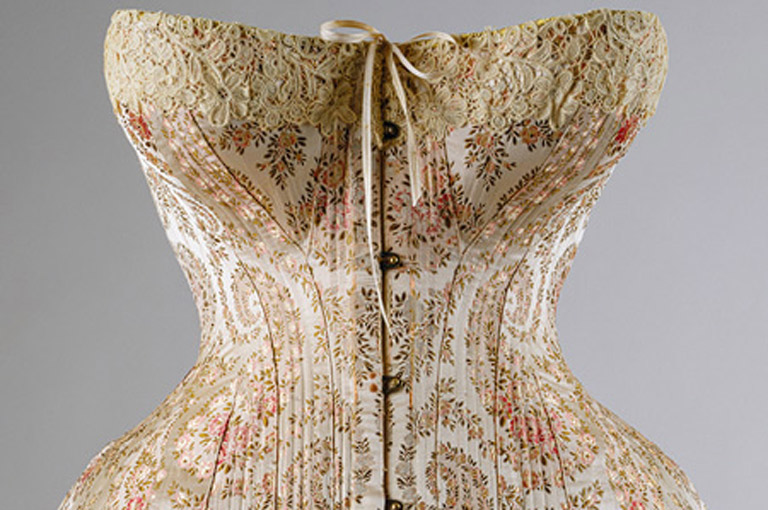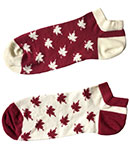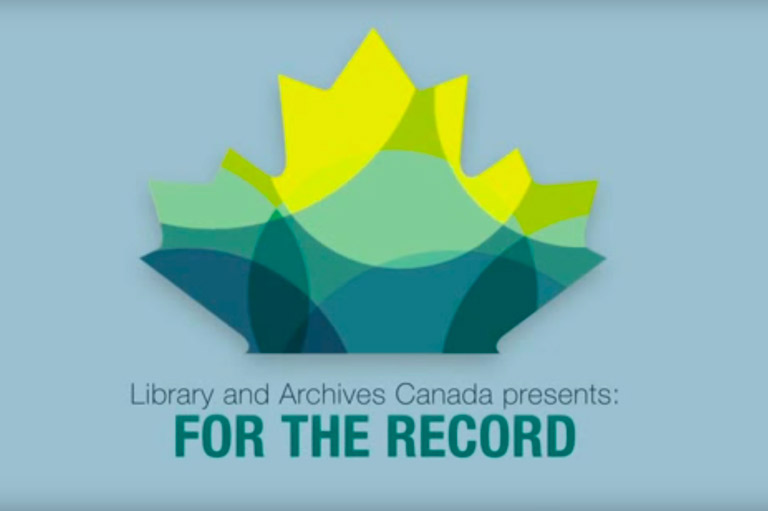If the Shoes Fit
To survive and thrive at the top of the world requires innovation and ingenuity. The Indigenous peoples of the Arctic region crafted clothing — including footwear — that perfectly utilized local materials. An exhibition at the Bata Shoe Museum in Toronto showcased the craftsmanship of the Inuit of Canada as well as other Indigenous polar peoples.

Coral Harbour, Nunavut, 1987
This boot features liners of baby seal and caribou worn under inner slippers of furred seal, as well as a sealskin outer layer. Olepa Karpik, an Iglulingmiut Inuit seamstress, won a special prize for this pair in the Decorated Moccasin competition held by the Bata Shoe Museum Foundation in conjunction with the Canadian Native Arts Foundation in 1987.
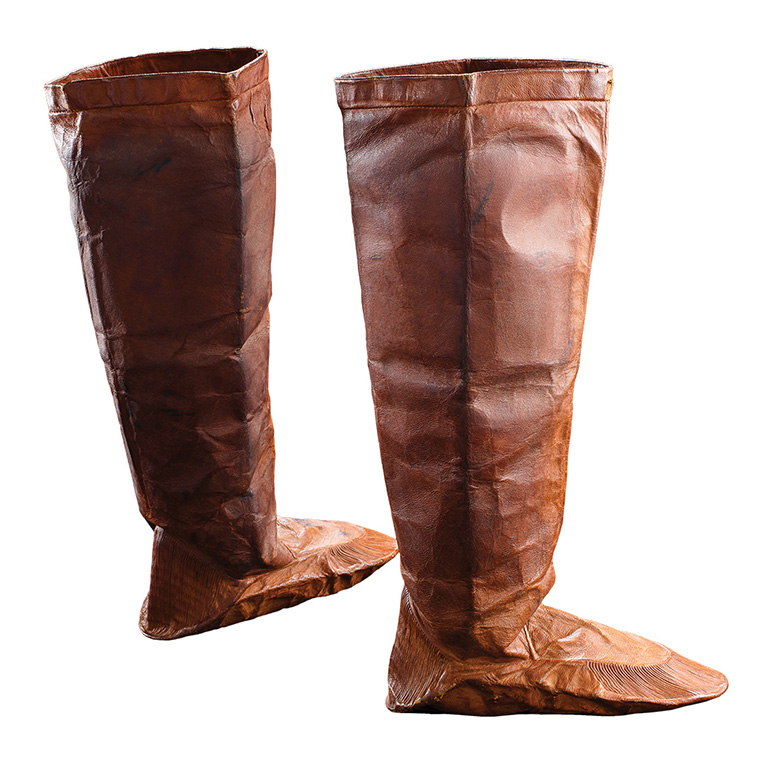
Kablunangajuit, Labrador, 1880s
The distinctive smock-like pleating found on these kamiit, commonly called kamiks, is characteristic of Kablunangajuit work from the southern part of Labrador. The pleating of sealskin requires great skill. The distinctive colour comes from their being dyed with alder bark.
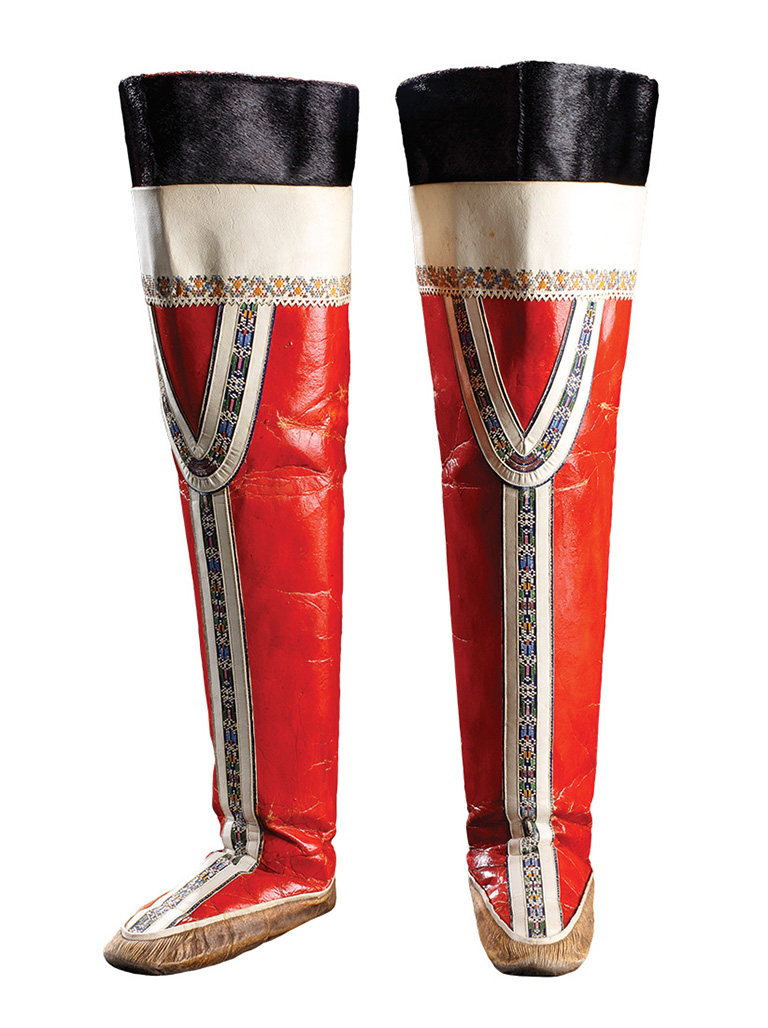
Nuuk, Greenland, 1955
In Greenland, the height of footwear traditionally differed based on gender. Men’s boots typically reached mid-calf, while women’s soared to midthigh. Black was reserved for men, while women’s boots were often red and white. This pair of red kamiit were made for a wedding anniversary in 1955.
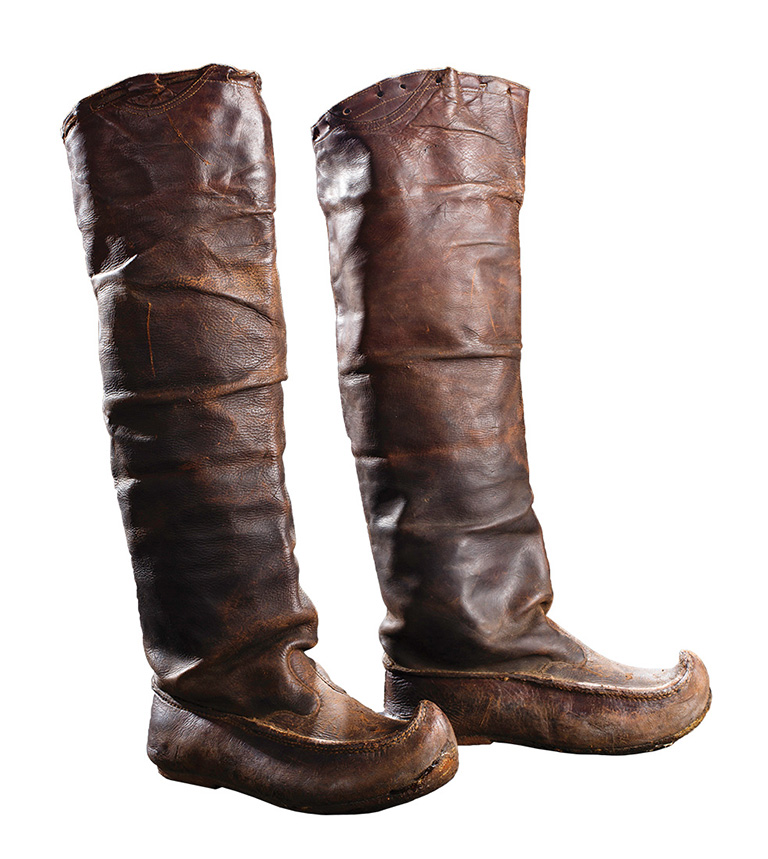
Purnu, Sweden, 1967
Although coastal Sami relied on marine life for their livelihoods, reindeer skin was preferred over seal and fish skin when making clothing and footwear. This pair of reindeer-skin boots was worn by Karesuando Sami, and was made from dehaired reindeer skin dyed with alder bark to increase water resistance.
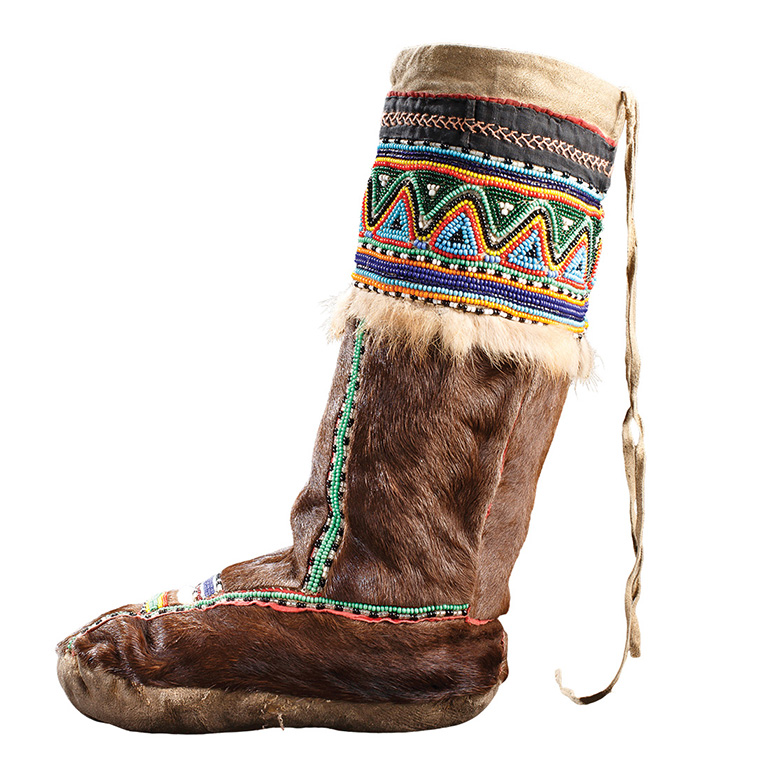
Orlofka, Eastern Siberia, Russia, 1960s
Historically, trade networks provided the Even, Evenki, and Koryak peoples with access to colourful beads, which they have used to skillfully decorate their clothing and footwear for centuries. This intricately beaded and frilled waterproof reindeer-skin boot was created in the 1960s.
Themes associated with this article
Advertisement
You might also like...
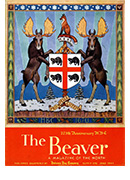
Canada’s History Archive, featuring The Beaver, is now available for your browsing and searching pleasure!



